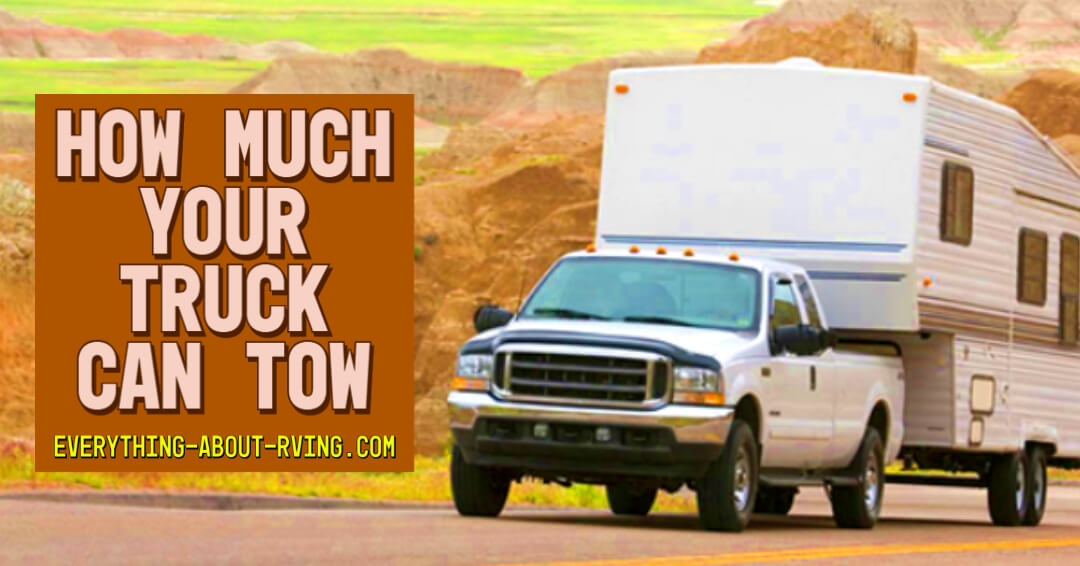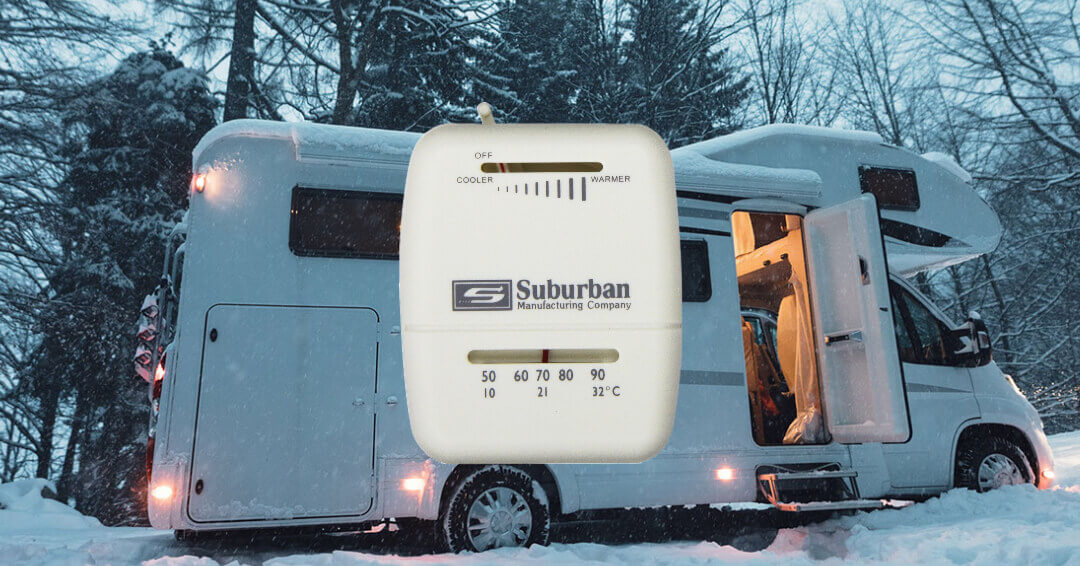- Home Page
- RVing Tips & Tricks
- Truck Towing Capacity
How Much Can My Truck Tow? The Ultimate Know-How Guide
The towing capacity of your truck should exceed the weight of the trailer you're going to tow
By Christina Quiroz
One of the most crucial considerations when buying a towable RV is to ask the salesman “how much can my truck tow?”. If you already have your RV (check out if you need a special license to drive an RV), it’s easy to make towing weight calculations. But if you haven’t bought one yet, you can decide on the towing capacity you want then match the motorhome based on your need.
If you’re a little skeptical on the information that the salesman or manufacturer feeds you since most of them tell things customers expect to hear, check the truck’s towing specs and data plates. Knowing a particular trucks towing capacity will help you weigh if it’s worth an investment.
Okay, first, let’s talk about some terminologies about vehicle specifications that will help you figure out how much your truck can tow.
Towing Capacity
Towing capacity, often called the maximum towing capacity, simply denotes the maximum weight that a vehicle can tow. The figures for this are usually specified by the manufacturer and should be found in the driver’s manual.
If the towing capacity of the truck isn’t specified, you may ask the manufacturer of its specs then calculate if your needs can be met by the truck’s towing capacity.
Consider the passenger weight, equipment to be stored, mounted, or carried, and the additional cargo you expect to load into the equation.
Users should never exceed their truck’s towing capacity because it may adversely affect its overall performance, stopping ability, and may damage the drivetrain.
In fact, some trucks with towing hitches have greater towing capacities than the specified figure because it can fit various types of tow vehicles. In any case, always stick to the manufacturer’s designated towing capacity to prevent any damages or accidents.
Gross Vehicle Weight Rating
The gross vehicle weight rating (GVWR) is the maximum operating weight of a vehicle. It encompasses the vehicle’s individual parts as well as its body, chassis, engine, fuel, engine fluids, other accessories, passengers, hitch, and cargo, excluding any trailers or other vehicles that need to be towed.
In essence, it denotes the value the truck can carry when fully loaded.
GVWR is typically used to designate weight limitations and restrictions. For instance, the curb weight describes a parked vehicle excluding the weight of passengers and cargo while the dry weight does not take into account the value of fuels, oils, and other consumables.
Gross trailer weight rating, on the other hand, specifies the maximum weight of a trailer the truck can tow while the gross axle weight rating denotes the allowable weight on any of the truck’s axles. These ratings are all established by the truck’s manufacturer.
Save 50% Off Campsites with Passport America
Gross Hitch Weight Rating (GHWR)
The trailer connects to the truck through a hitch, consequently putting weight onto the truck’s back; thus, it has to be accounted for. The gross hitch weight rating is the largest weight of the trailer’s load forcing itself on the hitch ball, carried by the rear axle.
In connection to this, the maximum tongue weight (MTW) is the largest load a bumper-pull (e.g., pop-up campers, travel trailers) can push down the tow vehicle’s hitch. For bumper-pulls, about 13-15% of the camper’s total weight is sufficient for the RV.
Likewise, the maximum king pin weight (MKPW) is the largest allowable weight the fifth wheel trailer can force down on the hitch attached to the vehicle. Generally, 20-25% of the camper’s weight pushes down the fifth wheels.
Gross Axle Weight Rating (GAWR)
Again, the gross axle weight rating (GAWR) is the largest allowable weight a vehicle’s axle can support. In connection to this, the actual weight carried by the rear axle or the rear gross axle weight, can be figured by calculating the total wheel weight resting on the rear axle, excluding any trailer load on that axle.
The rear gross axle weight rating, on the other hand, is simply the maximum allowable weight you can load into the truck’s rear axle.
For drivers to be able to tow their trailers safely, their trucks must have sufficient engine power for pulling the load. As a rule of thumb, the weight of any trailer should never exceed the tow truck’s maximum ratings or else, overloading will occur.
You’ll know you’re overloaded if the truck becomes challenging to steer and there’s the lingering presence of trailer sway.
Overloading of RV trailers will ruin the engines, hitches, transmissions, bearings, etc. Also, it’s crucial to have your rig weighed to make sure you’re driving safely.
Conclusion
The easiest approach to know how much a truck vehicle can tow is to look at the vehicle’s towing capacity.
Otherwise, you may look at the vehicle’s gross vehicle weight rating (GVWR). It tells users the maximum weight the tow vehicle can handle
Take note of the GVWR then subtract the total weight of the truck from the scale (via a truck stop). The leftover value tells you how much tongue or pin weight you can carry.
Also, check out the video below for a summary of all the terms we have discussed in this post. Visual learners will surely get a more concrete grasp of things in the video clip below.
Hey, camper! What’s up? Can you identify other ways of knowing how much your truck can tow? Comment your thoughts below! And hey, don’t forget to share this post. Cheers!
About The Author

Christina is a young blogger who is very passionate about her work. Her long experience has a blogger made her an expert on different niches like home, outdoor, lifestyle, leisure, etc. As a blogger, she believes in quality content and backs up all of her posts with relevant research information. It is her goal to share this quality information in the form of guidelines, reviews, lists, and other types of blog posts to her readers. She believes in constant exploration and evolution as a blogger. You can learn more about Christina at http://rainyadventures.com/
Do you have any suggestions or comments on this topic? You can add them to this page by using the comments section located below.





